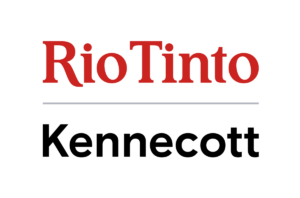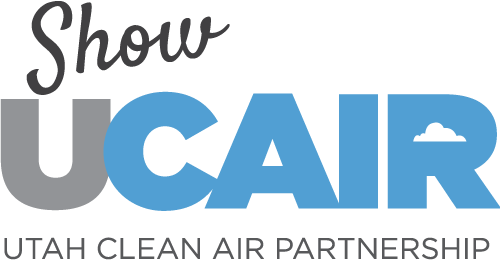UCAIR Funding Opportunities
Since 2013, the UCAIR Grants Program has encouraged businesses, public entities, and nonprofit organizations to propose creative and innovative projects to address air quality. The UCAIR Grants Program aims to reduce emissions of criteria and precursor pollutants that cause Utah’s year-round challenges with poor air quality. This complex issue requires a comprehensive approach, and applicants are encouraged to propose innovative and impactful projects in any area that advances our air quality mission and our pillars of Education, Partnership, and Participation.
2025-26 grant application forms and deadlines will be available soon.
Key Funding Priorities
For the 2025-26 funding cycle, the UCAIR Grant Selection Committee is looking for creative and inspirational projects that accomplish at least one of the following objectives:
- Reduce Emissions
- Target the reduction of emissions and criteria air pollutants that contribute to summertime ozone pollution and wintertime inversion.
- Implement emerging technologies to achieve measurable reductions in emissions.
- Address Air Quality in Underserved Areas
- Target emissions reduction in socioeconomically disadvantaged communities.
- Focus on areas of opportunity (geographic, industry, sector) that have not received adequate resources or support.
- Extend UCAIR’s mission beyond the Salt Lake Valley to communities throughout Utah.
- Educate on Air Quality Issues and Invite Participation
- Educate communities about air quality issues and inspire behavior changes that reduce emissions.
- Reduce barriers to make participation more accessible for all Utahns, especially historically underrepresented groups.
- Engage youth and young adult populations.
- Build Partnerships for Lasting Impact on Air Quality
- Foster collaboration among diverse stakeholders to address air quality challenges.
- Actively involve and benefit local community organizations and resident feedback.
- Create opportunities for future pursuit of innovative approaches to air quality issues.
Areas Not Eligible for Funding
While UCAIR is supportive of all efforts to lower emissions, we recognize that some areas do not align with our mission or are being addressed through alternative funding mechanisms. To maximize the impact of our limited grant resources, the UCAIR Grant Selection Committee has advised a restriction of funding to the following areas:
- Lobbying, political speech, or any form of political activity
- Electric vehicle charging infrastructure
We encourage you to explore the resources provided at the bottom of this page or contact our team for more information regarding alternative funding opportunities that may be available for these areas.
Informational Zoom Call - Recording now available!
Click here to access recording (opens in separate window)
Passcode: 6uN*0hnJ
UCAIR Grant Process Overview
- Applicants are encouraged to review the full 2024-2025 Request for Proposals document, which further details the eligibility criteria for a UCAIR Grant.
- To be considered, please submit a brief Letter of Intent (LOI) form. The LOI stage is designed to benefit applicants, as it allows UCAIR staff and the Grant Selection Committee to offer initial feedback and determine the project’s suitability.
- LOIs must be emailed to grants@ucair.org by August 2, 2024.
- After LOIs are reviewed by the UCAIR Grant Selection Committee, a select number of applicants will be invited to submit full applications.
- Final applications will undergo a comprehensive review by the Grant Selection Committee before being voted on by the UCAIR Board of Directors.
- When submitting a complete UCAIR Grant Application Form, please ensure that all requested items are included and that all forms are submitted in an accepted format.
- Incomplete or improperly completed applications will be disqualified or returned to the applicant for revision prior to being considered for funding.
Grant Timeline
Check back for 2025-26 application timeline dates.
Frequently Asked Questions
What is the average UCAIR Grant awarded?
The average UCAIR Grant awarded is between $20,000 – $25,000, but proposals of varying sizes are accepted.
What organizations are eligible to submit a Letter of Intent?
Applications will be considered from any private, public, or nonprofit organization operating in the state of Utah.
UCAIR Grants will not be awarded to individuals.
Grants awarded to for-profit organizations will be capped at 50% of the total project budget or a maximum of $20,000. For-profit organizations will also be expected to contribute matching funds.
How long should the duration of my proposed project be?
We recommend limiting your project duration to one year. Longer projects will be considered, but if the project is advanced to the application phase, a timeline outlining the distribution of UCAIR funds until project completion will be required.
How are proposals evaluated?
At each stage, proposals will be evaluated based on the following criteria:
- Relevance: Alignment with UCAIR’s Funding Priorities and Mission
- Sustainability: The potential for long-term impact and continued benefits
- Feasibility: The practicality of the project plan and budget
- Innovation: The creativity and originality of the proposed solution
Are indirect costs allowed to be accounted for in the budget?
Yes, indirect costs of no greater than 10 percent of the total request are allowable. Indirect costs include items such as rent, utilities, telecommunications, insurance, administrative salaries, and benefits.
What is meant by "in-kind commitment" on the Letter of Intent (LOI) form?
An in-kind commitment would be any anticipated non-monetary contribution to your project budget, such as pro-bono services or donated staff time. For the LOI form, please calculate or estimate the value of any in-kind commitments that will help to accomplish your project. The value of in-kind commitments can also be demonstrated as part of the matching requirement for for-profit organizations.
Are additional sources of funding required?
Additional sources of funding are not required, but we encourage applicants who have secured additional funding to include this information on the Letter of Intent form. There have been instances where UCAIR Grants have funded 100% of project/program budgets.
Have any other questions? Get in touch with our UCAIR Grants Team!
This year's UCAIR Grants funding cycle was made possible by the generous support of our UCAIR Partners:


Other Funding Opportunities
Rocky Mountain Power Electric Vehicle Infrastructure Program
The Rocky Mountain Power Electric Vehicle Infrastructure Program provides two ways to receive incentives for electric vehicle charging or make-ready infrastructure investments.
Alternative Fuel Heavy-Duty Vehicle Tax Credit
The State of Utah provides a tax credit for the qualified purchase of a natural gas, a 100% electric or hydrogen-electric heavy-duty vehicle (category 7 or 8 vehicle) that has never been titled or registered.
Charge Your Yard Incentive Program
The Utah Department of Environmental Quality (DEQ) provides lawn care businesses with up to $3,000 total credit to replace gas-powered leaf blowers, trimmers, or chainsaws with electric versions.
Small Business Environmental Assistance Program (SBEAP)
The Utah Department of Environmental Quality (DEQ) offers free support regarding environmental regulations and compliance and other resources to help Utah’s small businesses lower their impact on the environment.
Utah Clean Fleet Program
The Utah Department of Environmental Quality is offering reimbursements for Utah businesses to upgrade or replace heavy-duty or medium-heavy-duty trucks, vans, buses, and other diesel vehicles/equipment with cleaner versions.
Conversion to Alternative Fuel Grant Program
This Department of Environmental Quality program allows businesses that convert vehicles originally manufactured to run on gasoline or diesel to run on natural gas, propane, or electricity to apply for a grant of up to $2,500 per conversion.
Energy Efficiency Incentives for Homes
Utah Clean Energy provides a comprehensive list of available energy efficiency incentive programs in Utah.
ElectrifyYour Fleet: Medium- And Heavy-Duty Fleet Electrification Analysis
Have you wondered how electric medium- and heavy-duty (MHD) vehicles would perform in your fleet? Apply to receive a no-cost Fleet Electrification Analysis from Merge Electric Fleet Solutions in partnership with Utah Clean Energy.

